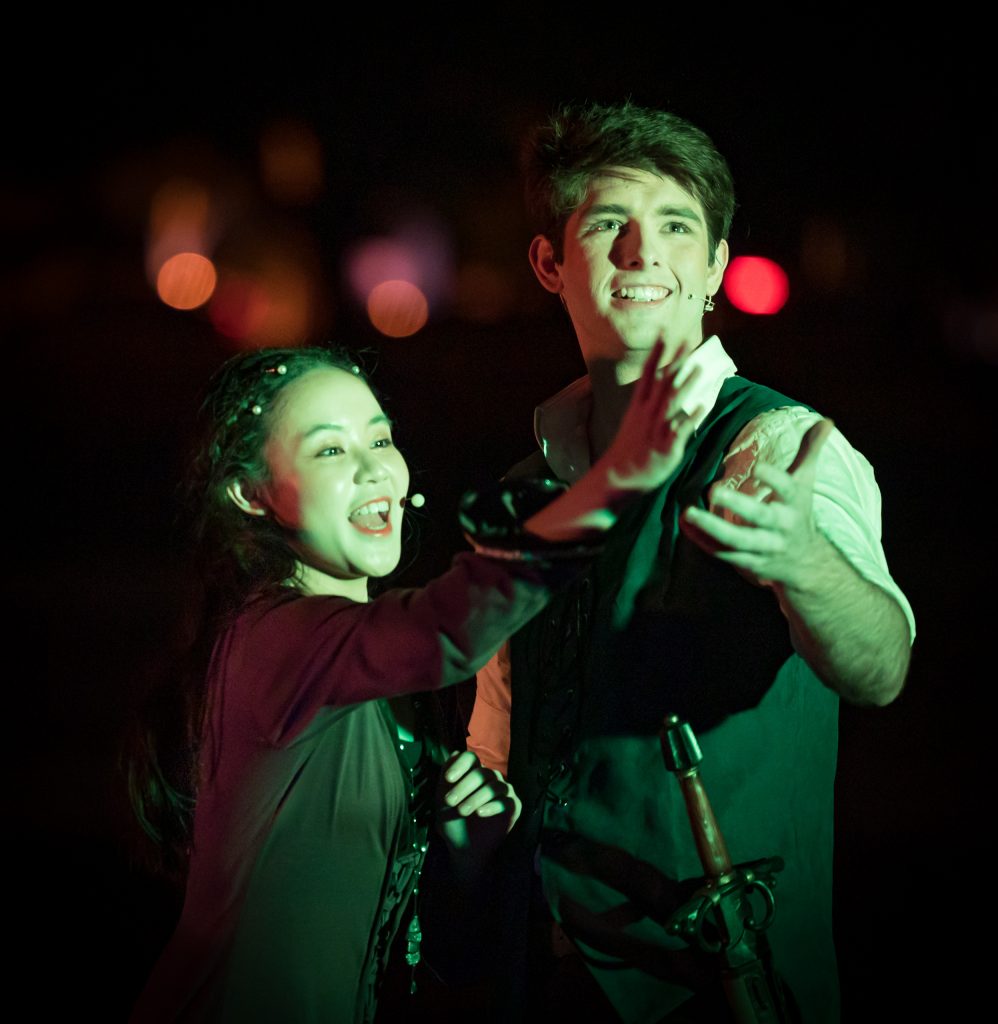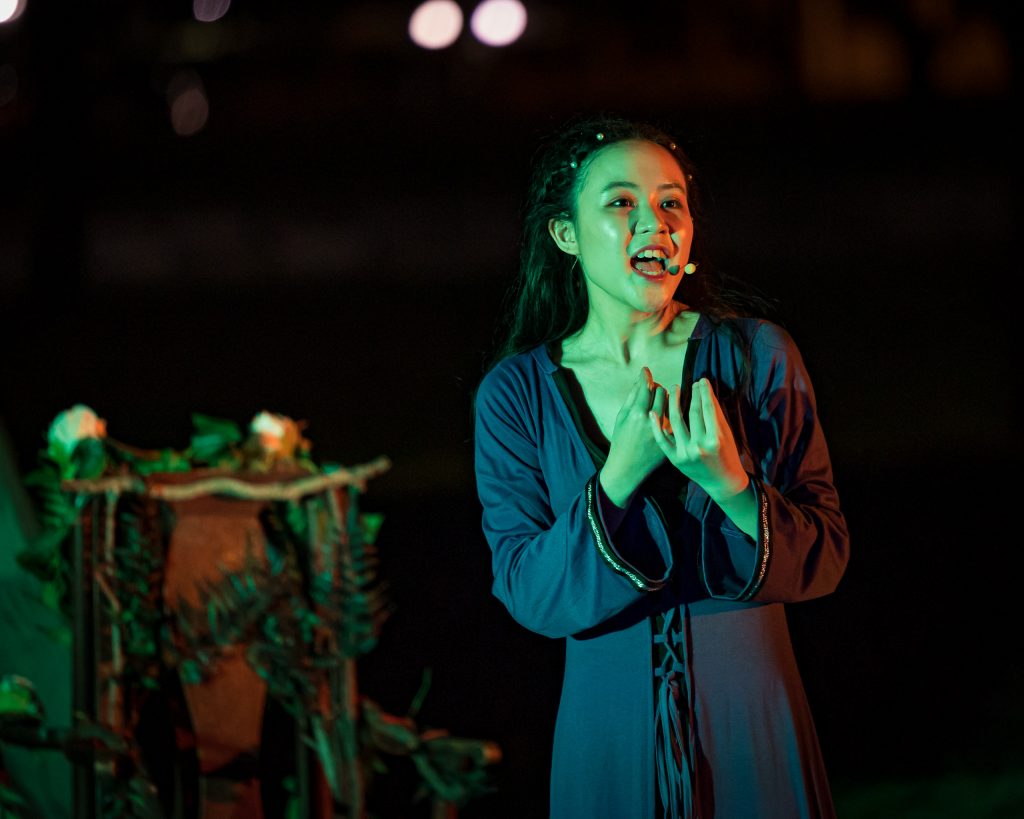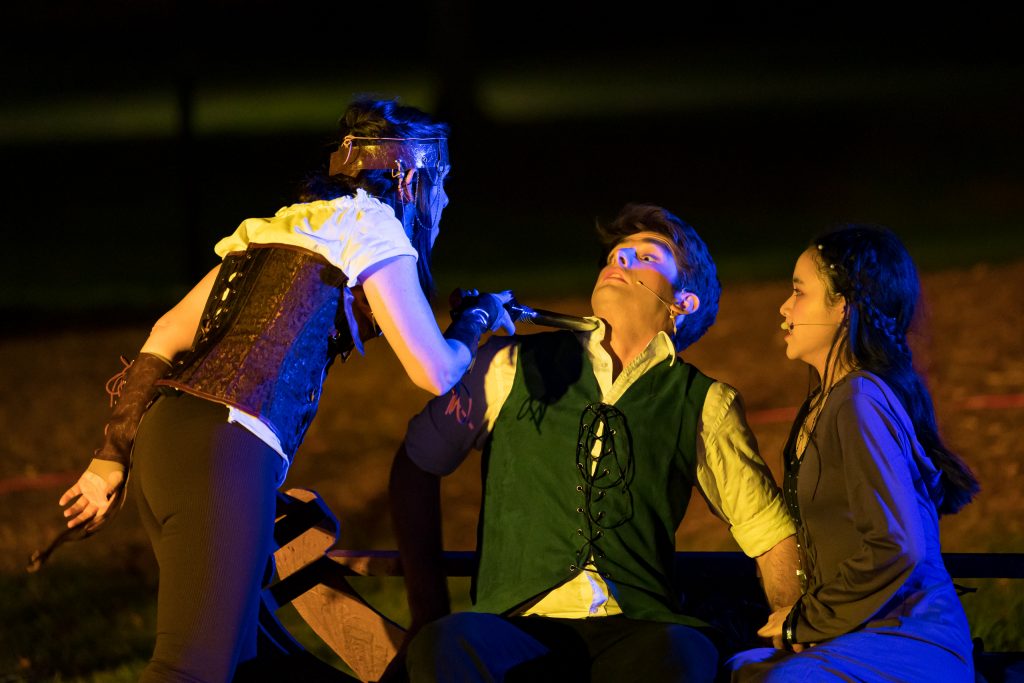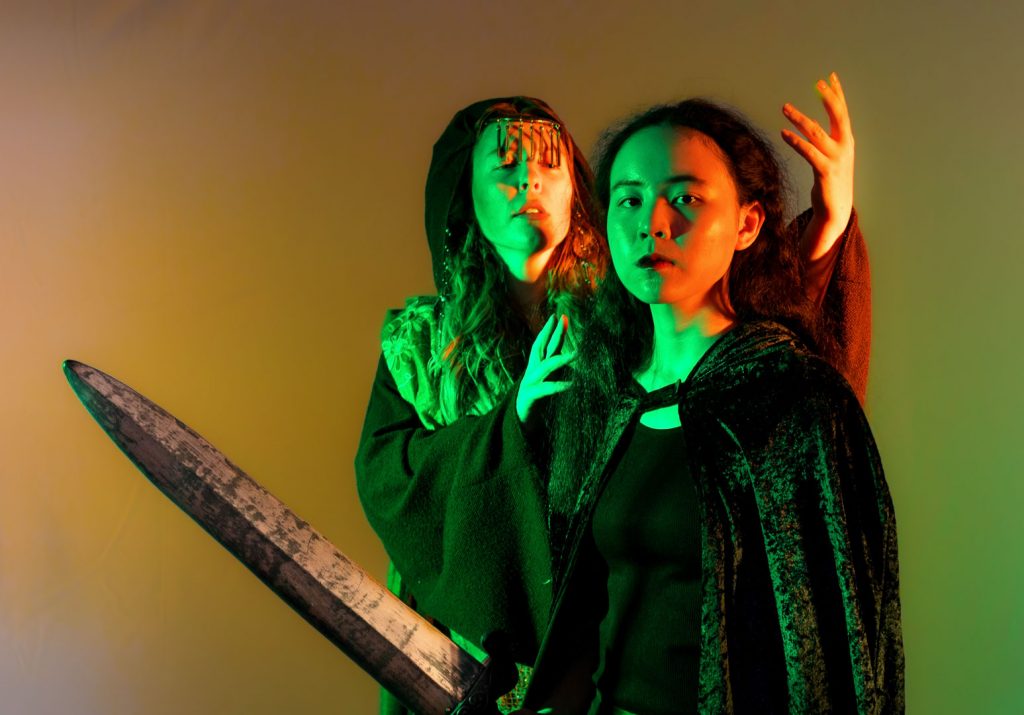
‘Destiny Doomed’ // Observatory Theatre
‘Destiny Doomed’ was ethereal.
In a mysterious corner of Musgrave Park, Observatory Theatre presents a bold reimagining of the Irish folk story ‘Deirdre of the Sorrows.’
‘Destiny Doomed’ was written and directed by local playwright Anina-Marie Van Wyk, with additional movement direction by Sara Jane Aistrope. The new musical features original songs, also composed by Van Wyk and was brought to life by a small cast of five actors. In the early hours of the evening, the show was performed outdoors, with a minimalist set that covered many locations and settings.
‘Deirdre of the Sorrows’ is an ancient Irish folk tale of beauty, lust and tragedy. It tells the story of Deirdre, a girl who was prophesied to bring sorrow and war upon the country due to her great beauty. King Conchobhar, whose men urged him to kill the newborn Deirdre, orders her to be locked away and kept hidden until she reaches adulthood, at which he has planned to marry her himself. A classic ancient tale of a self-fulfilling prophecy, and one of the best-known stories of pre-Christian Ireland, ‘Destiny Doomed’ sought to reimagine the story with a contemporary lens, while still staying true to the story’s historic roots.
Deirdre, played by Clarise Ooi, is portrayed with a great deal more agency than the original narrative gives her. Ooi balances the character’s childlike innocence with a fierce determination that aids greatly in making Deirdre feel fresh and modern, while still a victim of the culture she was raised in. The number ‘Resident Feminist Witch’ is one of the more overt examples of modern sensibilities being directly applied to Deirdre and the witch Blathnaid that raised her (Laura Fois). Deirdre’s desire for independence comes to a head when she encounters Naoise, played by Elliot Gough, whom she falls deeply in love with. Naoise does the same, and the two plot to run away together.
In modernising the piece, ‘Destiny Doomed’ focuses on the issue of consent. The script makes a point to shift blame from Deirdre and back on the men who feel that her beauty makes them entitled to her. Yes, she is foretold to bring about the destruction of the kingdom, but were she simply treated like an equal and allowed to have a normal life and choose her destiny, such a fate would never have come about. Conchobhar (Kieran J. Evans) and his henchman Maigne (Jesse Blachut) are initially portrayed as cartoonish villains, but when push comes to shove and their desire for Deirdre overcomes them, they are shown to be human predators with a frightening level of realism.
Vocally, the show was excellent. The entire cast are all immensely talented vocalists and absolutely nailed their parts thanks in no small part to Van Wyk’s musical direction and the work of vocal coach Georg Gleeson. The musical was performed with backing tracks, rather than a band, and on occasion, it did feel as if the cast were competing with the said track. It was few and far between, but words could occasionally be lost in the track, despite the actors all having impeccable projection.
When it came to creating an immersive atmosphere for its audience, ‘Destiny Doomed’ excelled in a way that few shows of this nature could. Every technical element of this show was a risk, and nearly all those risks paid off. The piece was performed outdoors in a park, not too far from a basketball court and a road that could get busy. Yet once the show began, all those potential distractions faded away into an ancient Irish forest as the bold, engaging lighting design from producer Lachlan Driscoll drew the audience in.
In its opening scene, the show was lit with just the candles held by its cast members, which beautifully complemented the mystical nature of the prophecy that set the piece into motion. From there, the area was lit by LED lights of varying colours that shifted depending on the mood and tone. In another piece, this kind of creative choice could appear distracting or otherwise unnecessary, but given the script’s origins in mythology, and the use of interpretative dreamlike choreography, these lighting choices only served to add to the spiritual nature of the show.
Movement director, Sara Jane Aistrope, succeeds in capturing the feeling of an ancient world with deliberate and interpretative choreography. The piece often took on an otherworldly quality, as characters moved at different speeds. Sharp movements contrasted with fluid ones to convey the varying levels of reality and mysticism, as well as complement the tone or mood of the scene.
Presenting an original musical in Brisbane is an achievement in and of itself. But presenting one of this quality outdoors, where so many things could go wrong and the subject matter is so niche, is such a bold endeavour one could even call it foolish. Yet Anina-Marie Van Wyk and her team have done so and managed to create an ethereal, fascinating experience that engages and inspires. ‘Destiny Doomed’ speaks to the nature of storytelling, where a story so old, so seemingly of its time, can be recontextualised and told to a modern audience in a fresh yet familiar way.
‘Destiny Doomed’ performs until Saturday, 8 October 2022 at Musgrave Park. For more information, visit Observatory Theatre’s website.
Images by Geoff Lawrence: Creative Futures Photography








